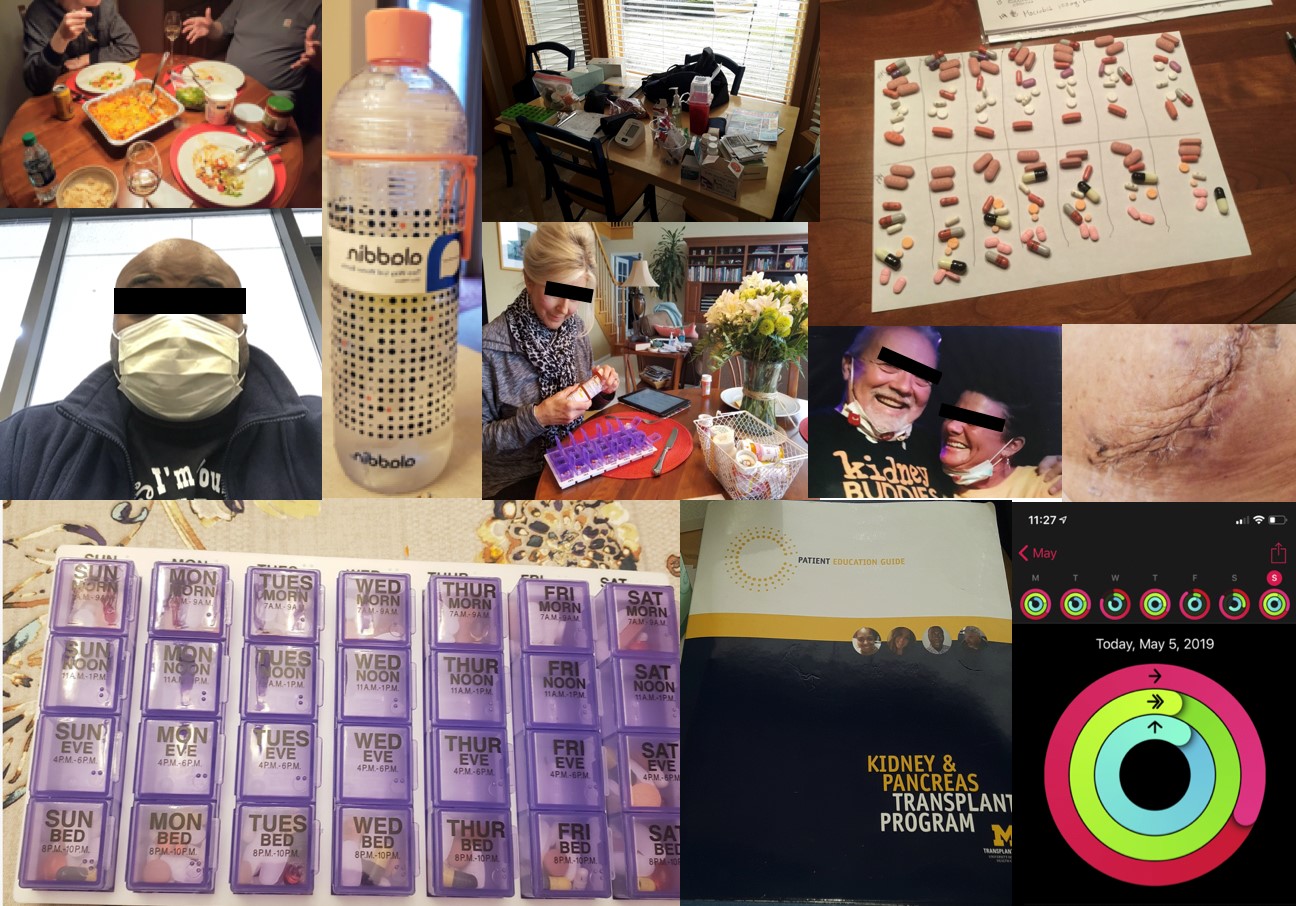Photo Elicitation Interviewing Exposes Educational Discordance Amidst a Web of Resources among Kidney Transplant Recipients
J. R. Montgomery, M. J. Kirsch, A. Rau, M. E. Byrnes, S. A. Waits
General Surgery, University of Michigan, Ann Arbor, MI
Meeting: 2020 American Transplant Congress
Abstract number: D-069
Keywords: Image analysis, Kidney transplantation, Patient education, Psychosocial
Session Information
Session Name: Poster Session D: Kidney Psychosocial
Session Type: Poster Session
Date: Saturday, May 30, 2020
Session Time: 3:15pm-4:00pm
 Presentation Time: 3:30pm-4:00pm
Presentation Time: 3:30pm-4:00pm
Location: Virtual
*Purpose: Comprehensive patient education is the bedrock of success for kidney transplant (KT) recipients. Despite the importance, we have a poor understanding of how patients view this process and the challenges they face. Therefore, we utilized a novel interviewing technique to better understand patients’ perspectives of transplant education.
*Methods: Photo elicitation interviewing is a qualitative method in which patients are asked to take photographs of important aspects of their lives that they wish to share with the research team. These photos are then used to guide semi-structured interviews exploring the patient experience. Interview transcripts are then analyzed to generate themes. A series of 40 consecutive KT recipients between Jan-Mar 2019 at a single US transplant center were approached, 30/40 (75%) consented, and 28/30 (93%) completed 1-month interviews with 186 photos shared with the research team.
*Results: Of 28 study participants, 20 (71%) were male and 6 (21%) were black with a median age of 56 years (IQR 47-62); 12 (43%) underwent preemptive KT. Education was a pervasive topic during interviews. Overall, participants felt bombarded by a wide web of “official” and “unofficial” educational resources. Official resources ranged from provider (surgeons, nephrologists, dieticians, pharmacists, and other clinical staff) to materials (transplant binder, pamphlets) and media sources (patient portal). Unofficial resources included participants’ families, friends, other KT recipients, dialysis patients, websites, and social media. Participants felt overwhelmed by multiple sources of information and were distressed when discordance existed between educational resources. Surprisingly, this discordance was most prevalent between “official” educational resources. To overcome this discordance, participants proposed a variety of solutions. These included centralization of information into a multidisciplinary transplant binder, personalization of the patient portal, and better agreement between providers on dietary restrictions after KT. They also requested a higher degree of anecdotal evidence during educational sessions.
*Conclusions: Photo elicitation interviewing elicited unique insights into transplant education. A vast web of educational resources was identified, and significant perceived discordance between “official” educational resources caused the greatest distress to KT recipients. These insights enabled patient-centered solutions to be identified in order to improve the educational experience.
To cite this abstract in AMA style:
Montgomery JR, Kirsch MJ, Rau A, Byrnes ME, Waits SA. Photo Elicitation Interviewing Exposes Educational Discordance Amidst a Web of Resources among Kidney Transplant Recipients [abstract]. Am J Transplant. 2020; 20 (suppl 3). https://atcmeetingabstracts.com/abstract/photo-elicitation-interviewing-exposes-educational-discordance-amidst-a-web-of-resources-among-kidney-transplant-recipients/. Accessed March 5, 2026.« Back to 2020 American Transplant Congress

